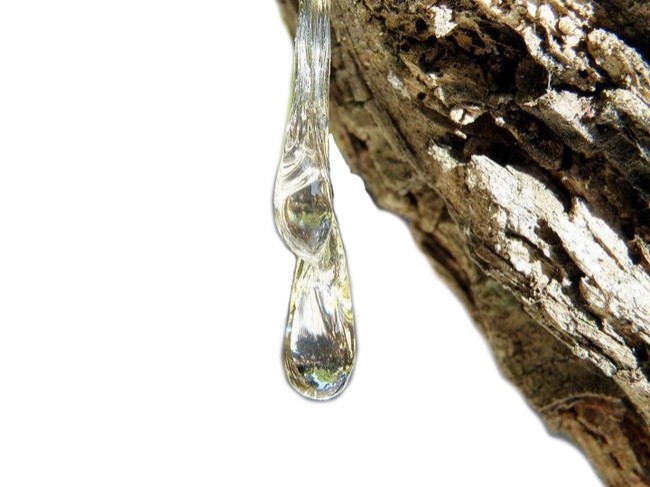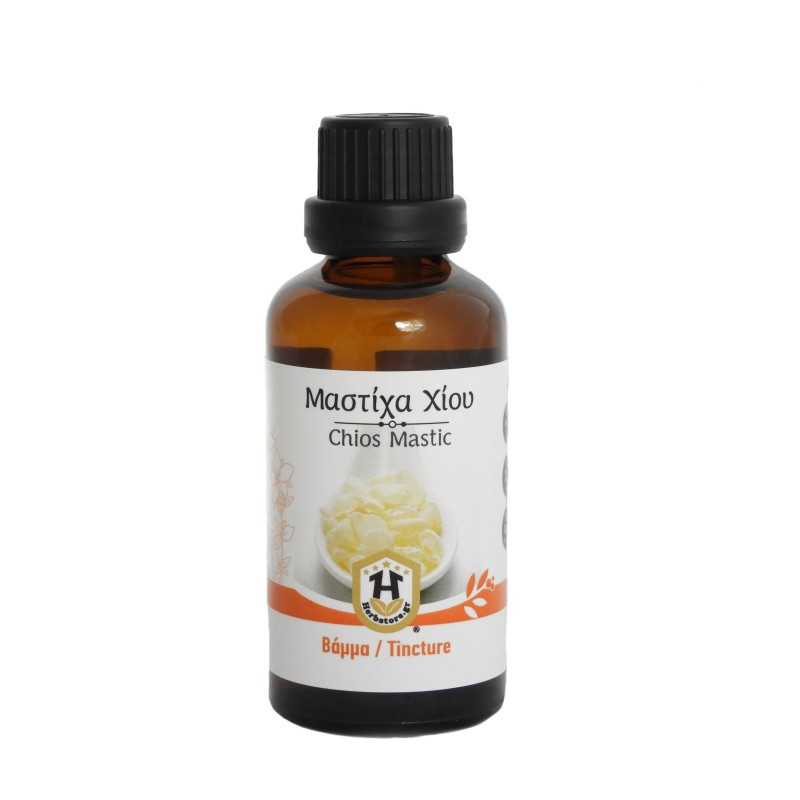Packaging: 50ml containing Mastic of Chios Tincture.
(Price includes VAT.)
The Mastic of Chios tincture is made by soaking Chios mastic in an alcoholic solution (grappa) for a period of 4-6 weeks. During this time, the active ingredients of the mastic dissolve into the alcoholic solution, resulting in the tincture.
The earliest references to the mastic tree and Chios mastic date back to antiquity, notably from Herodotus (484-420 BC), who mentioned that in ancient Greece, people chewed the dried resinous substance that flows from the bark of the mastic tree. Numerous medical texts from later antiquity include recipes primarily featuring mastic, which was considered beneficial for human health and attributed many properties to it. It was typically used in combination with other natural ingredients to treat various ailments.
Indeed, due to the strong anti-inflammatory action of eleanolic and oleanolic acids (3-oxotriterpene), mastic has healing properties that resolve inflammation in specific organs, starting from periodontal diseases, esophagitis, gastritis, and duodenal ulcers to colitis and hemorrhoids. It also prevents stagnation in these areas, helping to alleviate symptoms like dyspepsia or bloating. Additionally, digestion is facilitated by the reflex secretion of saliva and gastric fluid when chewing mastic. It is known that mastic is still used today to alleviate tumors in the anus, breast, liver, parotids, spleen, stomach, intestine, and esophagus, as well as for children’s diarrhea. Furthermore, it is considered analgesic, antitussive, appetite stimulant, aphrodisiac, astringent, erythropoietic, diuretic, expectorant, and hemostatic. Mastic is noted as a traditional remedy for abscesses, acne, cancer, ulcers, malignancies, cardiac pain, warts, atony, gingivitis, halitosis, leucorrhea, mastitis, tuberculosis, and atherosclerosis.
Recent studies by doctors at the University of Nottingham indicate that even in minimal doses (1 mg per day for 2 weeks), mastic can heal peptic ulcers caused by the bacterium Helicobacter pylori, due to its antimicrobial action. It also has a significant effect on liver function, activating its detoxifying activity. This way, cholesterol is absorbed, reducing its concentration in the blood and consequently lowering the risk of cardiovascular diseases. Additionally, diuretic properties have been noted, along with the inhibition of leukotriene synthesis due to mastic's action.
Further contemporary scientific research that led to the isolation and identification of ursolic and oleanolic acids has confirmed that many of the therapeutic actions of mastic, such as anticancer, hepatoprotective, anti-inflammatory, anti-ulcer, and antimicrobial (against various pathogens like Staphylococcus and Salmonella), can primarily be attributed to ursolic acid, as well as its isomer, oleanolic acid. It has been proven that adding natural Chios mastic to toothpastes, rinses, and mouthwashes enhances the immune response of the tissues between teeth and gums, acting against plaque formation and other periodontal diseases.
Tinctures preserve all the active ingredients of the herb, making them particularly easy to take and completely natural. They undoubtedly surpass dietary supplements in pill form, as they contain no chemicals or preservatives and are absorbed much more effectively by the body.
Herbal tinctures are highly potent, and therefore should be consumed according to their guidelines. The usual dosage is 0.5-1ml (approximately 10-20 drops per day). They should not be consumed during pregnancy and breastfeeding.
The Mastic of Chios tincture is produced in Greece under the strictest European regulations, using only pure and tested raw materials.
Origin: Greece, Imathia region.







